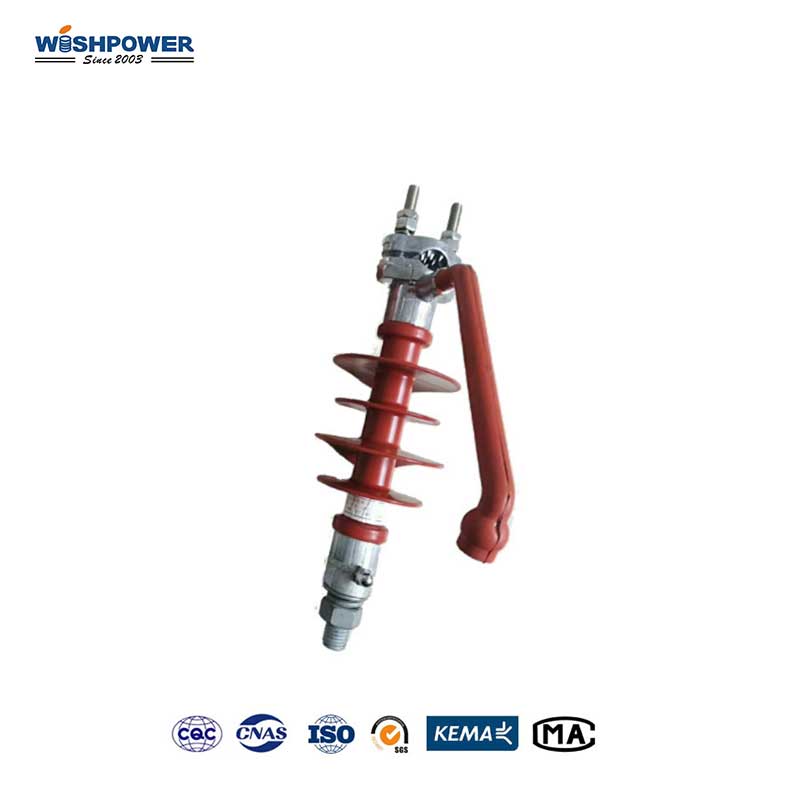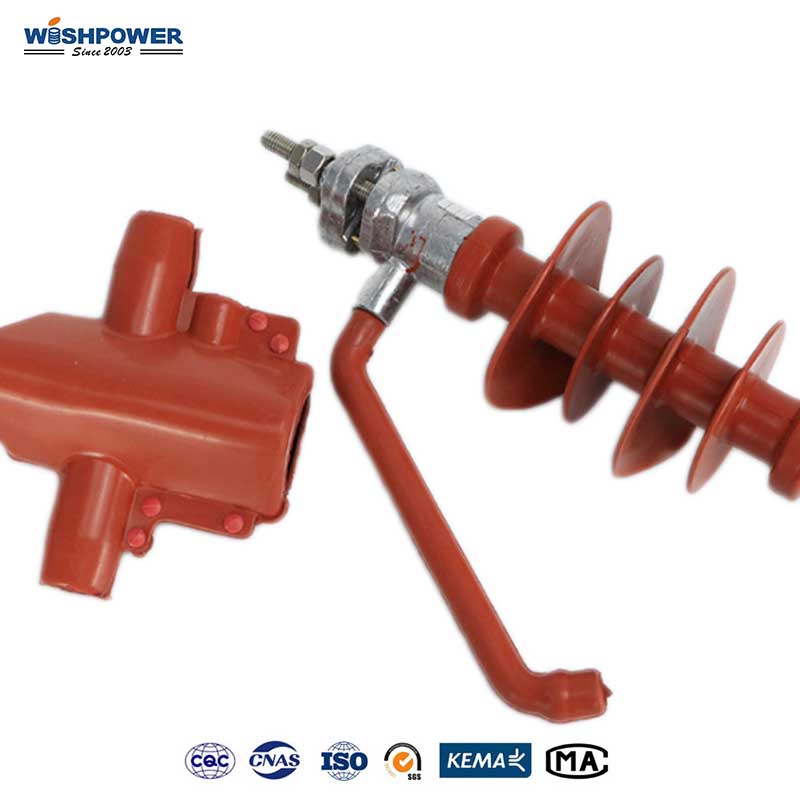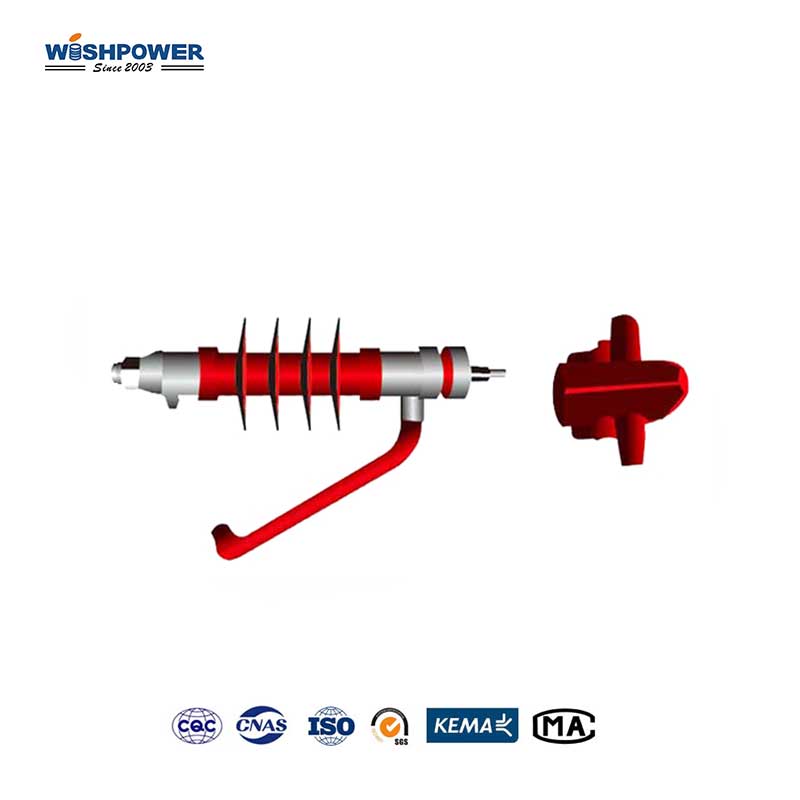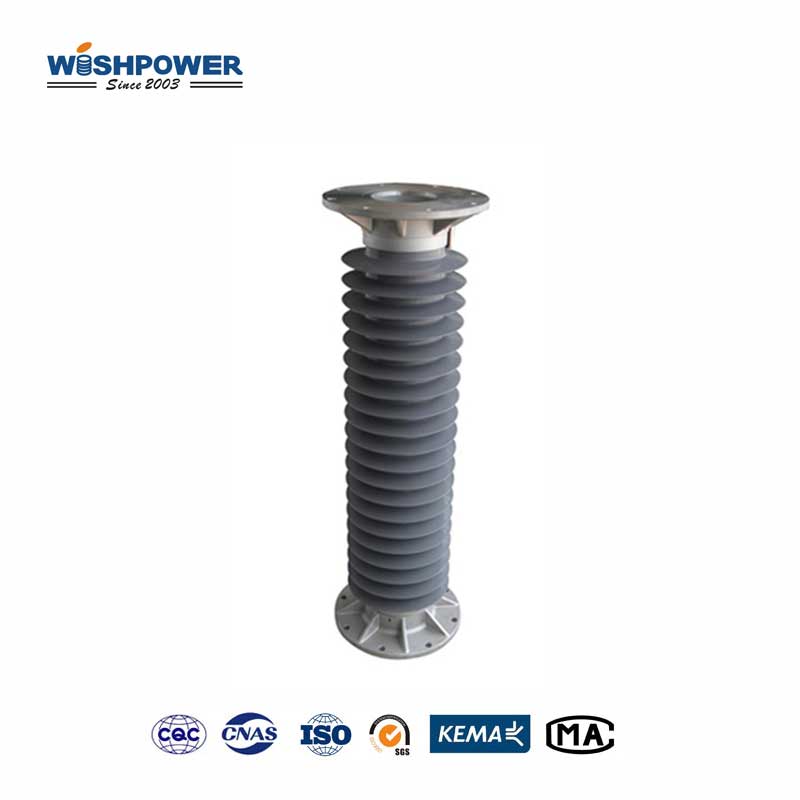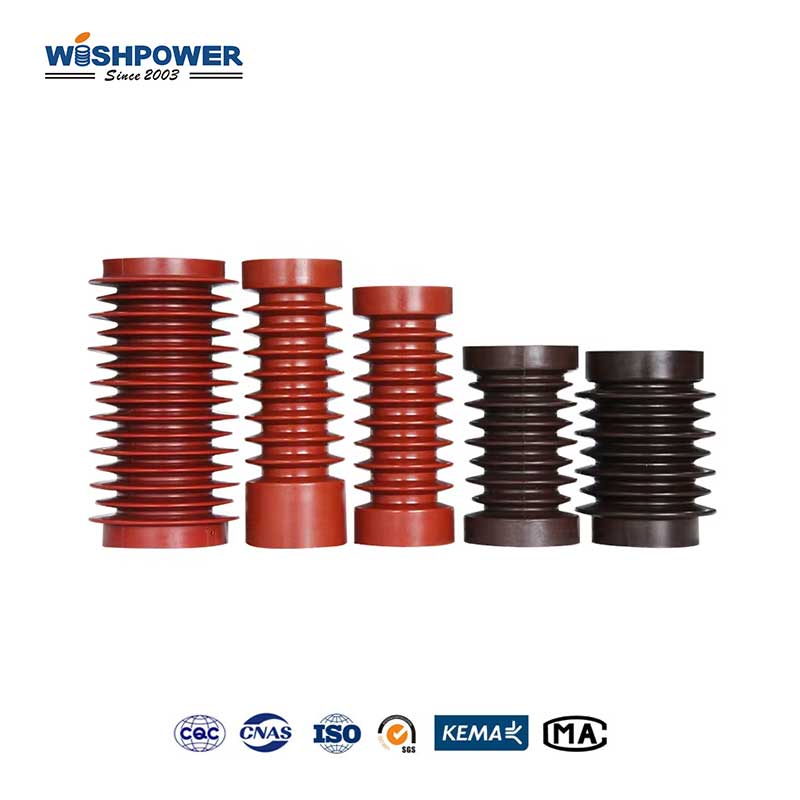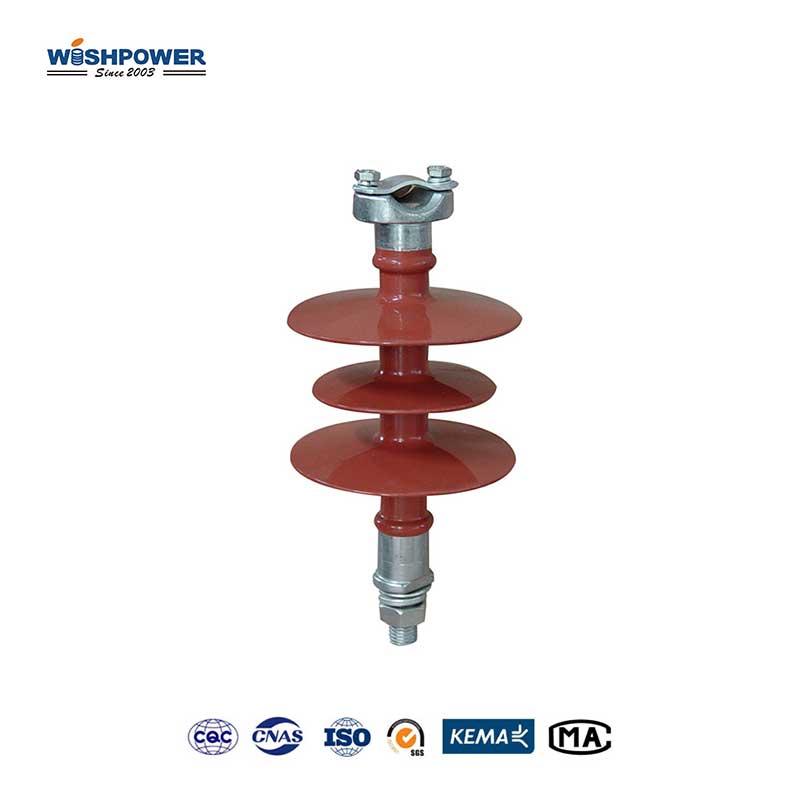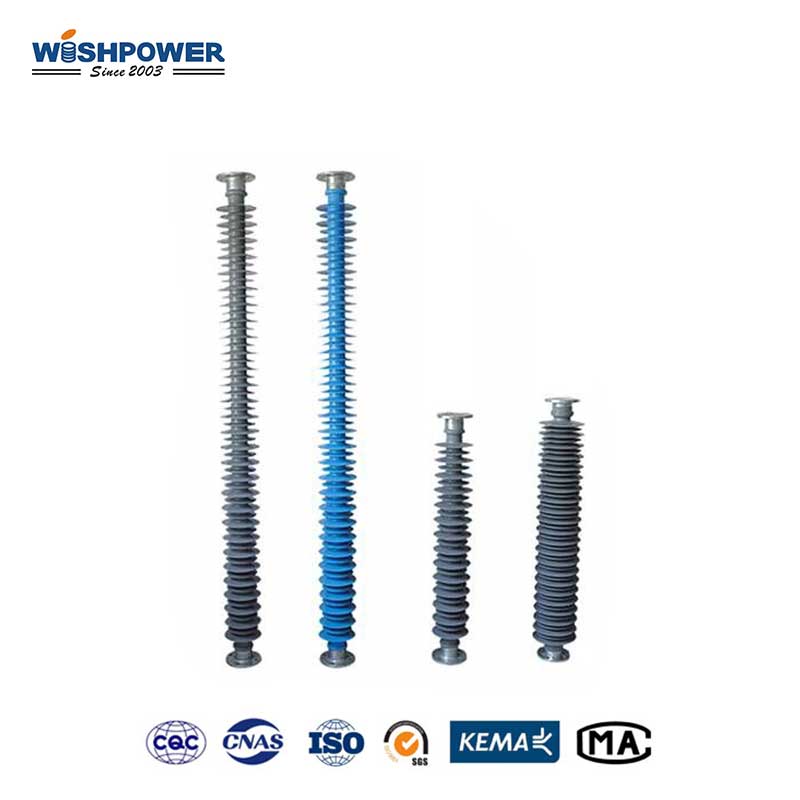Specification
| Type of Insulator |
FPEG-12/5 |
| Specified Voltage |
12 kV |
| Specified Bending Withstand Load |
5 kN |
| Section Length |
265 mm |
| Min. Arcing Distance |
150 mm |
| Big Shed Diameter |
98 mm |
| Min. Nominal Creepage Distance |
400 mm |
| Discharge Gap |
>100 mm |
| Lightning Impulse Withstand Voltage(Peak Value) |
≥75 kV |
| Voltage |
≥42 kV |
| Reference Weight |
1 kg |
Lightning protection insulators provide insulation and mechanical support while protecting electrical systems from overvoltage caused by lightning strikes by effectively dispersing and directing lightning currents. Wishpower has been in the insulator industry for more than 20 years, providing different products and solutions for different customers in different countries. Your company only needs to go through this website or info@wishpower.net to obtain the most suitable products and solutions.

What is the Lightning Protection Insulator?
Lightning Protection Insulator is a kind of special Insulator applied in the field of high-voltage transmission lines and substation facilities. Its main purposes are to act as an insulator, give mechanical support to conductors, and reduce the amplitude of overvoltages during a lightning strike to prevent insulation failure. It disperses and directs the lightning currents through its construction and use of materials and shields electrical system equipment from the effects of lightning. These insulators are usually produced from superior ceramics or composite material, an aspect that provides them with high mechanical load capability and high electric insulation level. Besides, they have low flashover/high voltage contamination capability in an anti-pollution environment and high aging resistance. Hence, they are very vital in maintaining the security and reliability of power systems.
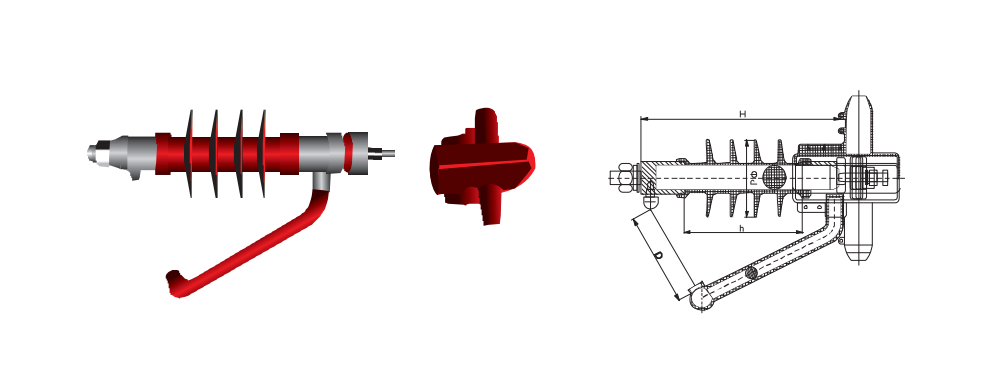
Lightning Protection Composite Insulator VS Surge Arrester
Lightning Protection Insulator:
Function:
Lightning Protection Composite Insulator mainly offers mechanical support and electrical insulation for the high-voltage transmission line and substation equipment.
Operation:
This is done by insulating the conductive parts of the system while it is also designed to handle voltage spikes normally associated with lightning strikes. It continues the integrity of the power system and also avoids electrical breakdown of the systems connected to it.
Material:
They are normally manufactured from ceramic of good quality or composite material to provide high mechanical rigidity along with good electrical insulation.
Location:
Used as a part of the normal insulation system that is incorporated in the transmission lines as well as the substation structures.
Surge Arrester:
Function:
Surge Arresters are particularly engineered to respond to transient over-voltage conditions, which include; lightning strikes and switching surges.
Operation:
In case of a high voltage surge the surge arrester offers a low-value impedance to the ground and so effectively protects the downstream circuit by ‘bridging it to the ground and at most times limits the surge voltage to a safe level. Afterward, the arrester goes back to its high resistance state up to a voltage value that is greater than the surge voltage.
Material:
Constructed employing elements such as metal-oxide varistors (MOVs) that provide a non-proportional nature of voltage and current to clamp voltage.
Location:
Usual in areas of its electrical network like near transformers, circuit breakers, and along transmission lines as a protective measure from over-voltage occurrences.
Features
- Insulation and Mechanical Support:
Lightning-proof Insulators are used for electrical purposes as well as mechanically for the support to high voltage transmission lines and substation equipment. Responsible for the mechanical and electrical endurance of the power system in its normal and overvoltage state.
- High-Quality Materials:
They are normally available in high ceramic material or composite materials. Provides mechanical strength and dielectric strength which helps in providing the finest high strength to electrical insulation.
- Overvoltage Withstand Capability:
Designed to withstand high voltage spikes caused by lightning strikes. Prevents electrical breakdown and maintains the integrity of the power system during lightning events.
- Anti-Pollution Flashover Performance:
Has good flashover performance under anti-pollution conditions, that is, when the voltage present at the site surges. Contributes to the overall dependable operation of the transmission system in areas affected by polluted contaminants thus minimizing the likelihood of a flashover.
- Aging Resistance:
Resistant to aging effects due to environmental exposure. Provides the client with secure usage over a long-term timeframe with minimal maintenance maintenance.
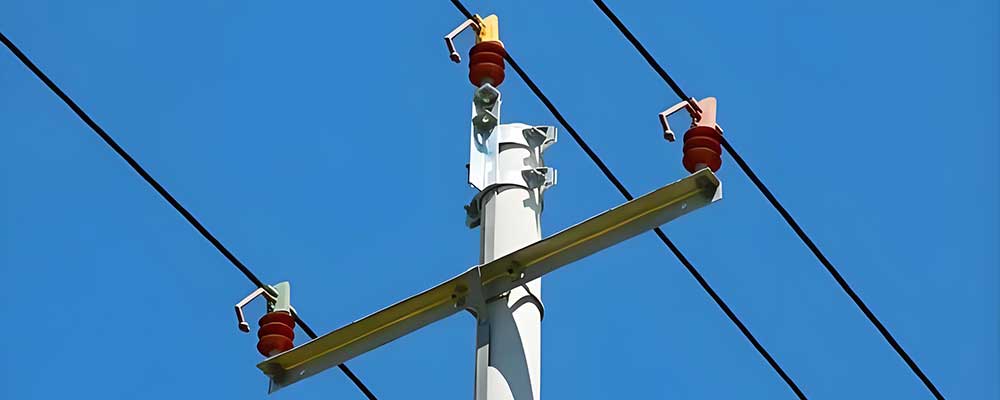
Application
These are mostly applied in transmission lines, transformers, switchgear, transmission towers, and electrical power stations. They afford insulation for electrical transmission and mechanical support for the distribution of electricity that is shielded from the effects of lightning overvoltage. The Lightning Protection Post Insulator has the most crucial role in ensuring stable and continuous operation of the entire power grid during unfavorable weather conditions.
About Us
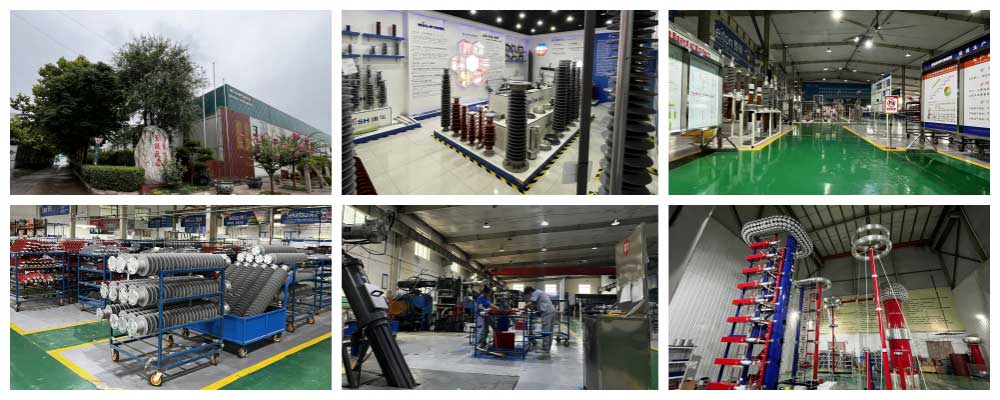
Certificate

Hot Tags: Lightning Protection Insulator, Composite Insulator, China, manufacturers, ISO factory, wholesale, KEMA, high quantity, best, price, low to high voltage














